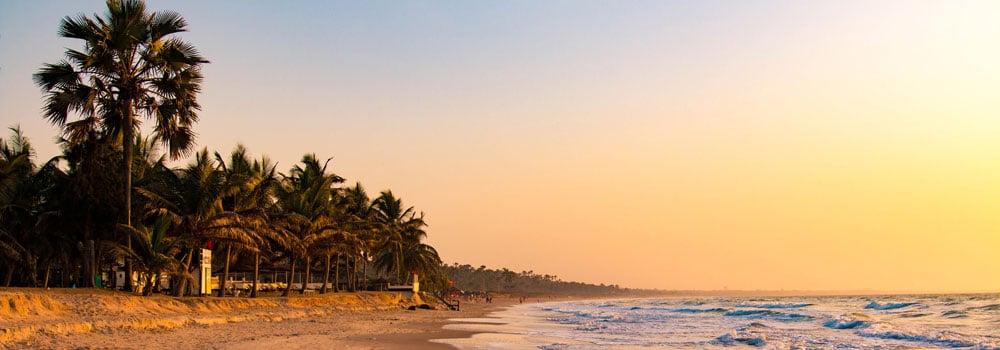The smallest country in Africa, Gambia is less than six hours from the UK and in the same time zone.

But easy flights and no jet leg aren’t the only reason this little West African country works so well for family holidays. Gambia also has beautiful Atlantic beaches, a tropical climate and average year-round temperatures of 30˚. Colourful towns and traditional villages along the coast contrast with an unspoiled and very accessible interior. But, for most visitors, it’s the easy, friendly charm of the Gambian people and the country’s rich, fascinating culture that’s the biggest attraction of all.
Direct flights from UK to Banjul year-round. Flying time 6 hours 30 minutes.
Same time zone as UK, no jet lag and English is first language.
Africa’s smallest mainland country, nicknamed ‘the smiling coast’
Sub-tropical climate with average temperatures of 25 to 27˚C year round.
Warmest and driest between November and March, good for winter sun.
Gambia has two UNESCO World Heritage sites: Kunta Kinteh Island and the Stone Circles of Senegambia.
Several UK tour operators support environmental and community conservation through tourism in The Gambia.
The Gambia’s just slightly larger than Jamaica and most of the country’s resorts are on the Atlantic west coast. Arranging day trips or longer stays in the interior is very doable from a beach base and a growing number of UK travel companies have a choice of multi-centre holidays in The Gambia tailored for families with older kids and teenagers.
The Gambia is surprisingly accessible and exploring beyond the coast into the remarkable interior’s a great adventure. But, car hire’s expensive and the country’s road network isn’t great. The best way to get around with kids is to book mini-tours, cruises and expeditions with recommended local or UK operators. Alternatively, almost all resorts can arrange private jeep and driver hire for families – much more cost-effective and less stressful than self-drive.